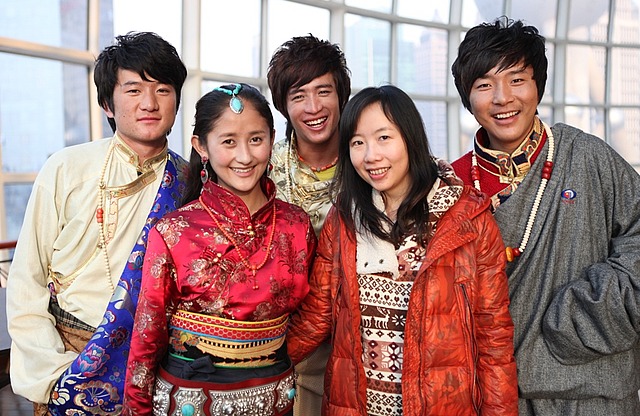By Harun Jamallullail & Ma Feiya
When people hear about China, the few places that would come to mind would be Beijing, Shanghai and Guangzhou. Other upcoming places would be Xian and also Chengdu. However, there are a few places that should also get due recognition by everyone.
Unlike Chinas Portuguese counterpart, Macau (Região Administrativa Especial de Macau da República Popular da China), or even Hong Kong (Hong Kong Special Administrative Region of the Peoples Republic of China) which have gained heavy media attention due to their economic vibrance and every sort of entertainment available there have been publicised.
Other parts of China somehow go unnoticed and also some are unknown to many people. However, in this article, I would like to introduce readers to one of the Top Ten places to visit in China. Where is this place? Â It is called Qinghai.
Qinghai is located in the heart of China, close to Xinjiang, Gansu, and also the famous Tibet Autonomous Region. Qinghai (མཚོ་སྔོན་/é’æµ·) is a unique province in China. With its current location on the Qinghai-Tibet plateau, the community has a huge mixture of ethnic groups from Han, Tibetians, Hui, Mongols and more. Besides that, it has a unique culture with influence “between the Mongolian and Tibetan culture, north to south, and Han Chinese and Inner Asia Muslim culture, east to west.”
One of the tourist attractions in Qinghai would be Xining Shi, the provincial seat of Qinghai. Unlike the other parts of China during summer which can be extremely hot, Qinghai offers a mild and comfortable weather, bringing in a lot of tourists from various parts of China. The main attraction of Qinghai would be the Qinghai Lake, which is the largest saltwater lake in China and is also located in the Tibetan Plateau. Annually, an international bicycle ride takes place from Xining to Qinghai Lake.
Historically Xining, (ཟི་ལིང་à¼/西å®å¸‚), it was a commercial hub along the Northern Silk Roads Hexi Corridor for over 2,000 years, and was a stronghold of the Han, Sui, Tang and Song dynasties. Although being part of the Gansu region for a long period of time, in 1928, Xining was added into Qinghai. Besides that, Xining holds sites of religious significance to Muslims and Buddhists, including the Dongguan Mosque and Taer Monastery .
Last but not least, Xining also have a huge variety of local favours. It is distinct from other Chinese dishes in which it uses food products native to the area. Despite food tends to be substantial, but quite inexpensive which makes it affordable to people who want to try their dishes. On the streets, it is possible to see many Muslims selling spicy lamb brochettes. The lamb brochettes taste very delicious, especially during cold weather.
Therefore, I recommend people to visit Qinghai to experience a new environment and also try something new in their life. If you would like to escape from the hectic city life and would want to explore nature and culture, this will be the place as they are able to see the part of China first hand.***
